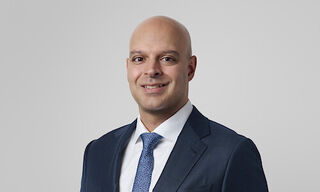Curiously, declaring myself a feminist created a wave of surprise, encouragement, some criticism, and plenty of welcome debate, Santander Chairman Ana Botín writes in an essay for finews.first.
finews.first is a forum for renowned authors specialized on economic and financial topics. The texts are published in both German and English. The publishers of finews.com are responsible for the selection.
When Spanish radio host Pepa Bueno asked me earlier this summer if I was a feminist, I instinctively said yes. Frankly, I said so without hesitation. Curiously, declaring myself a feminist created a wave of surprise, encouragement, some criticism, and plenty of welcomed debate.
In fact, had Pepa asked me the same question ten years ago, I would have said no. Contrary to speculation, there was, for me, no «Road to Damascus moment.» The road to Damascus, after all, was more than 140 hot and dusty miles on foot – plenty of time for introspection.
«My gut reaction was against setting quotas»
After years of serving as an executive I’ve seen enough to know, on balance, women are not treated fairly. But I frequently heard feminism equated with the idea of setting quotas. My gut reaction was against setting quotas. I thought they can be unfair to both men and women, in some ways I still do. I don't want to blame men. I also did not wish to advantage one gender over the other.
It is obvious that women and men are not quite the same physiologically or psychologically —although we are more similar than some think. More significant is that women are exposed to very different experiences and expectations throughout their lives. Still, I always believed women have the intrinsic abilities to get ahead on merit. Working eight years for a U.S. bank in New York taught me something: If I spoke up and work harder than my bosses, my efforts won't go unnoticed.
Sheryl Sandberg has most recently championed this brand of feminism in her book «Lean In». Often, by not backing our abilities says Sandberg, women «lean out» of the competition for positions of influence and fail to climb the career ladder. This is a feminism that says, yes we can get ahead, if we work harder, speak up in meetings, push – to be able to also run our homes— for flexible working conditions for ourselves.
«That speech put flesh on the bones of my philosophy about a fairer work environment»
It is a feminism that you can do for yourself. It does not require collective organization, let alone identifying publicly as «feminist». Because of this it is not directly political. Perhaps that is why many career women like myself are instinctively attracted to it.
I have seen the need for both personal assertiveness and structural change in the companies I have worked in. Back in April 2008, more than ten years ago, when I was the president of Banesto, I gave a speech at Bilbao’s Deusto Business School in a hall packed with men. That speech put flesh on the bones of my philosophy about a fairer work environment.
The speech sketched a world where we needed both for women to act with more self-confidence, but simultaneously that we had to change our work culture —and by extension society— if we wanted fairness. Importantly, these beliefs were also reflected in my policies as leader of Banesto, Santander U.K. and now at Santander Group.
«Having significantly higher ratios of women in the workplace is not only fair»
In the speech, I stressed the importance of diversity in the workplace. Quoting several studies, I said having significantly higher ratios of women in the workplace is not only fair. It is also good for business.
- Page 1 of 2
- Next >>



























